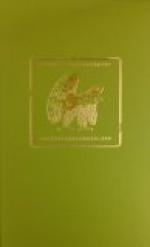A ripple of laughter passed over the jury and on through the courtroom. Even the presiding judge smiled, and Mr. Bromley hurried to say: “Tell us something about that Alaska coal, Mr. Tisdale. You have found vast bodies— have you not?—of a very high grade; to compare favorably with Pennsylvania coal.”
“The Geodetic Survey estimates there are over eight millions of acres of coal land already known in Alaska,” replied Hollis statistically. “More than is contained in all Pennsylvania, West Virginia, and Ohio combined. It is of all grades. The Bonnifield near Fairbanks, far in the interior, is the largest field yet discovered, and in one hundred and twenty-two square miles of it that have been surveyed, there are about ten billions of tons. Cross sections show veins two hundred and thirty-one feet thick. This coal is lignite.”
“How about the Matanuska fields?” asked Mr. Bromley.
“The Matanuska cover sixty-five thousand acres; the coal is a high grade bituminous, fit for steam and coking purposes. There are also some veins of anthracite. I consider the Matanuska the best and most important coal yet discovered in Alaska, and with the Bering coal, which is similar though more broken, these fields should supply the United States for centuries to come.”
Mr. Bromley looked at the jury. His smile said:
“You heard that, gentlemen?” Then, his glance returning to the witness:
“Why the most important?” he asked.
“Because all development, all industry, in the north depends on the opening up of such a body of coal. And these fields are the most accessible to the coast. A few hundreds of miles of railroad, the extension of one or two of the embryo lines on which construction has been suspended, would make the coal available on Prince William Sound. Used by the Pacific Navy, it would save the Government a million dollars a year on transportation.”
The prosecuting attorney looked at the jury again in triumph. “And that, gentlemen, is why the Prince William Development Company was so ready to finance one of those embryo railroads; why those Matanuska coal claims were located by the syndicate’s stenographers, bookkeepers, any employee down here in their Seattle offices. Mr. Tisdale, if those patents had been allowed and the claims had been turned over to the company, would it not have given the Morganstein interests a monopoly on Alaska coal?”




